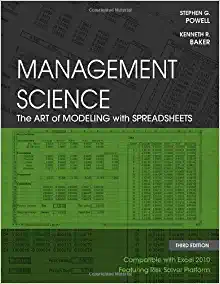Question
1.The higher the rates of return, the larger present values will be. True or false? 2.In concrete terms, based on the diagram on page 35,
1.The higher the rates of return, the larger present values will be. True or false?
2.In concrete terms, based on the diagram on page 35, by how much does a company create wealth over a given financial period? Why?
3.Of the following companies, which would you define as making "a margin between the end market and an upstream market"? temporary employment agency; storage company (warehouse); slaughterhouse; furniture manufacturer; supermarket.
4.Give a synonym for net assets.
5.What is a non-cash expense? What is a deferred charge? Describe their similarities and the differences between them.
6.What are the four basic cycles of a company? Please explain.
7.Van Poucke NV has positive EBITDA and growth, but negative operating profit. State your views.
8.Are initial flows on an investment more often positive or negative? What about for final cash flows?
9.According to the terminology used in Chapter 2, is depreciation a cash outflow or a cost? What is the difference between these two concepts?
10.A very high yield to maturity over a very short period is preferable to a yield to maturity that is 2% higher than the required rate of return over 10 years. True or false?
11.In your view, should short-term debt be separated out from medium-to long-term debt on the cash flow statement? Why?
12.What is your view of a company which has seen a huge increase in sales due to a significant drop in prices and a strong volume effect?
13.Is financial expense included in cash flow from operating activities?
14.Provide several examples illustrating the difference between cash receipts and revenues, cash expenses and costs.
15.Is the permanent part of working capital liquid?
16.Can the growth rate to infinity of a cash flow be higher than the discount rate? Why?
17.Why break down contributions made by associate companies into operating, financial and non-recurring items?
18.If income is recorded on a company's books on the day it is received (and not on the invoice date) and costs on the date of payment, would this generate working capital? If so, how would this working capital differ from the working capital as calculated today?
19.Why is the increase in inventories of raw materials deducted from purchases in the by nature income statement format?
20.What is the discount factor equal to?
21.How is an investment decision analyzed from a cash standpoint?
22.Why do we say that, as a general rule, operating cash flow should be positive? Provide a simple example that demonstrates that operating cash flow can be negative during periods of strong growth, start-up periods and in the event of strong seasonal fluctuations.
23.What mechanism pushes market value towards present value?
24.The main manufacturers of telephony equipment (Ericsson, Nokia, etc.) provided telecoms operators (Deutsche Telekom, Swisscom, etc.) with substantial supplier credit lines in order to assist them in financing the construction of their UMTS networks. State your views.
25.Do liabilities that arise during the operating cycle always have a maturity of less than one year?
26.Should the cash outflows of launching a new perfume be considered as an operating outlay or an investment outlay?
27.Do shareholders and lenders carry out financial analysis in the same way?
28.Why start a financial analysis with a study of wealth creation?
29.If the purchase price of an investment is positive and all subsequent cash flows are positive, show how there can only be a single yield to maturity.
Step by Step Solution
There are 3 Steps involved in it
Step: 1

Get Instant Access to Expert-Tailored Solutions
See step-by-step solutions with expert insights and AI powered tools for academic success
Step: 2

Step: 3

Ace Your Homework with AI
Get the answers you need in no time with our AI-driven, step-by-step assistance
Get Started


